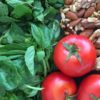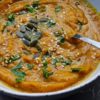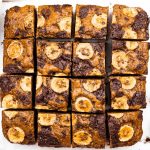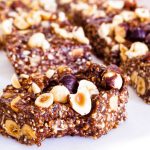
Healthy Lifestyle, Our Wholefoods Kitchen
Our Top Ten Wholefoods to Keep you Healthy this Winter
One of the best ways to keep healthy throughout the cooler months of winter is through our diet. Eating a wholefoods diet supports us year round, but is particularly beneficial in times when our bodies immune system may be compromised as it is when we are exposed to cooler temperatures for long periods of time.
Of course, we cannot say enough for keeping warm and this can also be done through the foods we choose to eat and how we are preparing them. Adding spices to our cooking is an easy way to bring more warmth to our foods, not to mention the delicious & varied flavours they add.
After careful consideration, here we share our top ten wholefoods to support immune health and keep you healthy throughout winter.
Almonds
Starting with almonds because we love them so much and for so many reasons. Not only are they so delicious but they are also one of the few nuts that are alkalising in the body due to their high calcium and magnesium content. An alkaline body is generally less likely to harbour illness when physical or environmental stresses are present. Almonds are also an excellent source of protein, potassium, iron, zinc and vitamin E, and a good source of antioxidant flavonoids.
Throughout winter you can toast your almonds with a range of different spices to add warmth and flavour. A combination of chilli, cumin and coriander is delicious and very warming for the body.
Black Turtle Beans
This humble little bean (more simply known as black beans) is a favourite in store and is particularly good for making Mexican style bean dishes such as Chilli Con Carne or a warming Black Bean Salad. Black Turtle Beans rank the highest on the antioxidant rich list for all beans due to their high anthocyanin content. Anthocyanins are antioxidant flavanoids found in darker coloured food such as berries and red grapes. They protect the cells by fighting against free radicals that enter the body through air or food.
Pepitas
This tasty seed has so many benefits it was inevitable that it make the grade. High in protein and fibre, and full of flavour, pepitas are great for heart health, brain health and general well-being. The high levels of iron & phosphorus support blow flow and circulation whilst rich amounts of Zinc boast immune and thyroid support. Pepita’s are also an excellent source of Vitamin E, which offers antioxidant defence as well.
We recommend you eat pepitas in a nut and seed trail mix, bake them into homemade bread, or toast to sprinkle onto salads or soups. They also go well as a substitute for nuts when making herb pesto.
Figs
One of our favourite dried fruits in store, dried Turkish Figs are a great natural source of the alkalising minerals calcium, potassium and magnesium and are also high in vitamin K, iron and fibre. Due to their high mucilage content, the fruit and leaves have been traditionally pulverized and gargled to heal and soothe sore throats. We do though recommend figs be consumed in moderation due to their high fructose (sugar) content.
Figs are delicious on their own or combined with your favourite nuts and seeds as a snack. They are great sliced and cooked into a warming winter style porridge with cinnamon, cardamon and nutmeg spices. They are also a great addition when making homemade bliss balls.
Pine Nuts
A hidden gem, pine nuts are technically not a nut but an edible seed found in the cones of the pine tree. Pine nuts are a great addition to your winter repertoire being an excellent source of vitamins and minerals that support immunity and bone health as well as antioxidant support. They contain rich amounts of Vitamins B1, B3, E, K, plus our favourite minerals magnesium, phosphorus and copper. They are also a great source of protein, fibre and healthy monounsaturated fats.
We love sprinkling freshly toasted pine nuts on top of warm salads, quinoa or rice side dishes, casseroles, scrambled eggs, smashed avocado on toast, or roasted vegetables. They are also our traditional favourite to add to do it yourself homemade pesto which is always great to have on hand for an easy pasta dinner option.
Black Quinoa
Black quinoa is an excellent source of protein, fibre and complex carbohydrates. It offers a source of complete protein for the body, containing all the essential amino acids as well as B vitamins, folate, vitamin E, iron, magnesium and zinc. It’s dark colour is due to it’s anthocyanin content which as mentioned above, is a supportive antioxidant to help keep the body a disease free environment.
Black quinoa is delicious cooked as a side dish to curries and casseroles throughout the cooler months. It also goes well in soups (you only need small quantities) or as the main component in salads.
Walnuts
One of our healthiest nuts, walnuts are a great source of the beneficial omega 3 fatty acids and the important antioxidant, vitamin E. They are also rich in the vitamins B3, B6 and folate, high in the minerals copper, iron, magnesium, manganese, phosphorous and zinc, as well as being a good source of protein, and fibre. We chose them in our top ten as they are a great all round nutritious nut to support our bodies throughout winter.
You can eat walnuts as part of a trail mix or use them in your cooking and baking. They are great in homemade breads and muffins, delicious crumbled over porridge, and of course they bring loads of flavour when toasted and added to warm salads.
Medjool Dates
No surprises that our Organic Medjool’s made the top ten. Larger, softer and sweeter then regular dates, medjool dates taste almost caramel like with a creamy texture that has them melt in your mouth. They are often used as a natural sweetener in cooking and baking, and particularly in making raw food recipes, but they also have many properties that are supportive to our health. Medjool’s are said to boost bone health, reduce triglyceride levels, prevent and relieve constipation, decrease cholesterol as well as being a natural energy booster that tastes great. Some of the nutritional benefits include being high in fibre, low in fat and an excellent source of the potassium, magnesium, calcium and B6.
Dates are delicious in baking or cooked in porridge throughout the winter months. Our Tip: being super sweet, a little goes a long way!
Moong Dahl
You can’t beat a wholesome warming dahl in the winter time and the classic moong dahl (coming from the split mung bean), boasts a beautiful flavour and rich nutrition. It is a fantastic source of protein and dietary fibre, one of the best sources of natural folate and an excellent source of magnesium, calcium and zinc, fast making it a natural addition to our top ten.
Moong dahl is traditionally used to make warm spiced dahl to which there are many variations and styles. It is also a great addition to winter soups (used in small quantities).
Green Lentils
Last but absolutely not least we have chosen green lentils to complete our top ten. The lentil family often goes unnoticed due to their popularity, but don’t underestimate this legume and the benefits it has to offer. Nutritionally they are an excellent source of iron, fibre and protein, also containing many beneficial vitamins and minerals including magnesium, phosphorus, potassium and copper.
Mostly we love green lentils for their versatility and their simplicity in preparation. Soak overnight or rinse before cooking into simple soups, curries or casseroles – our top 3 winter favourites!
Enjoy the winter in 2017, keep warm, and happy wholefooding!
If you liked this article you may also enjoy reading about Wholefoods for Healthy Kids


















Leave a reply